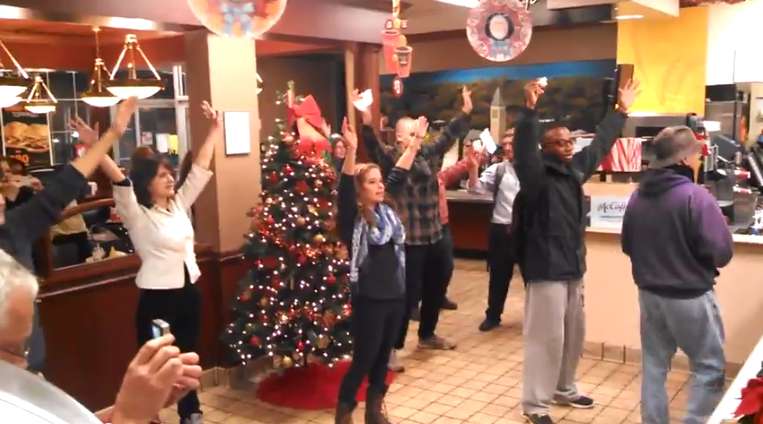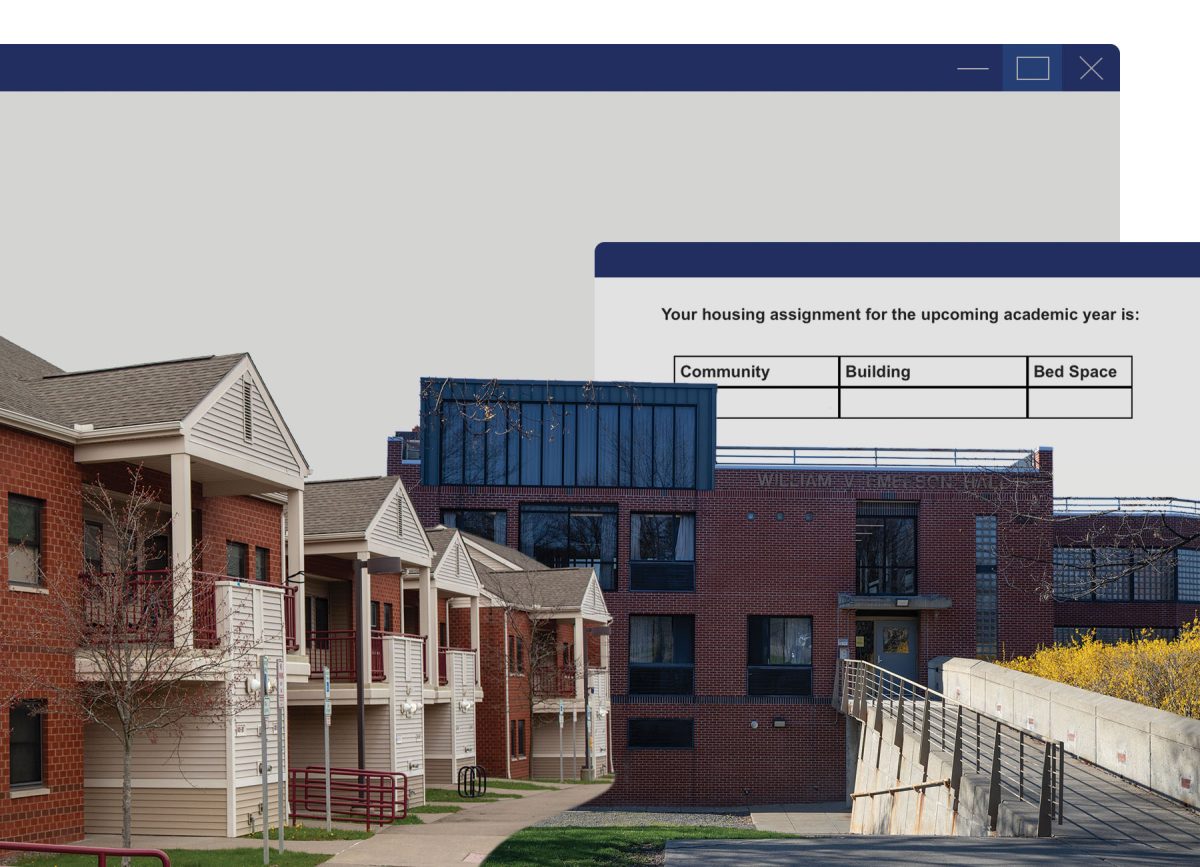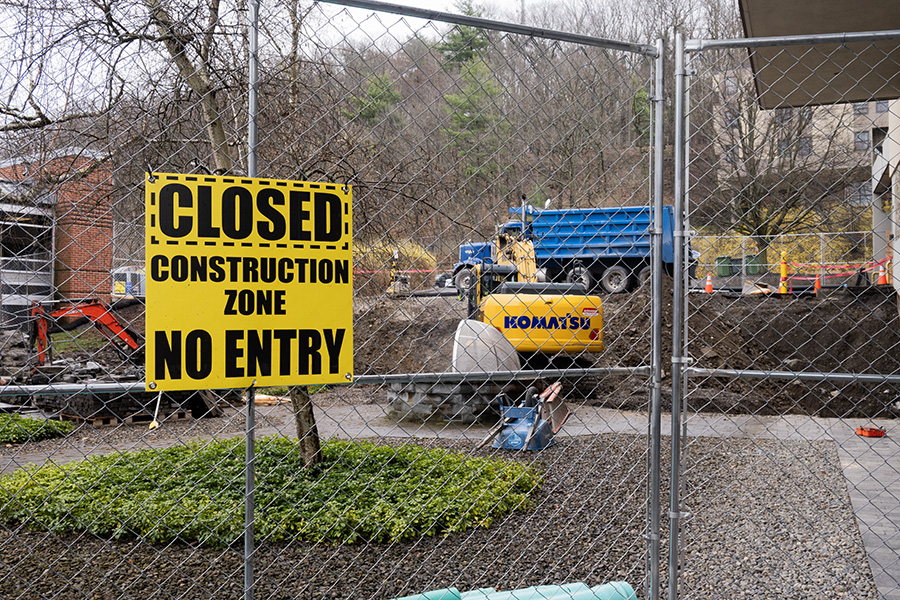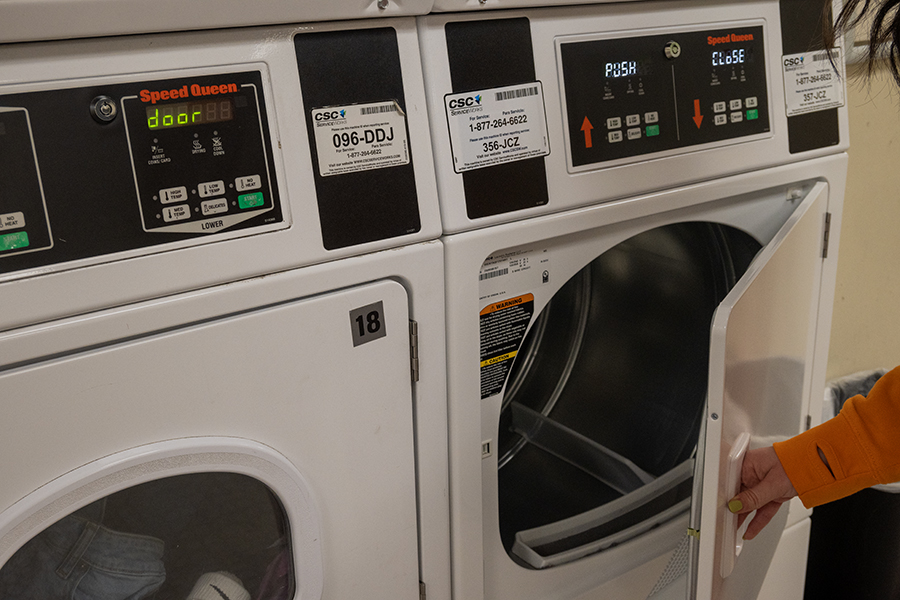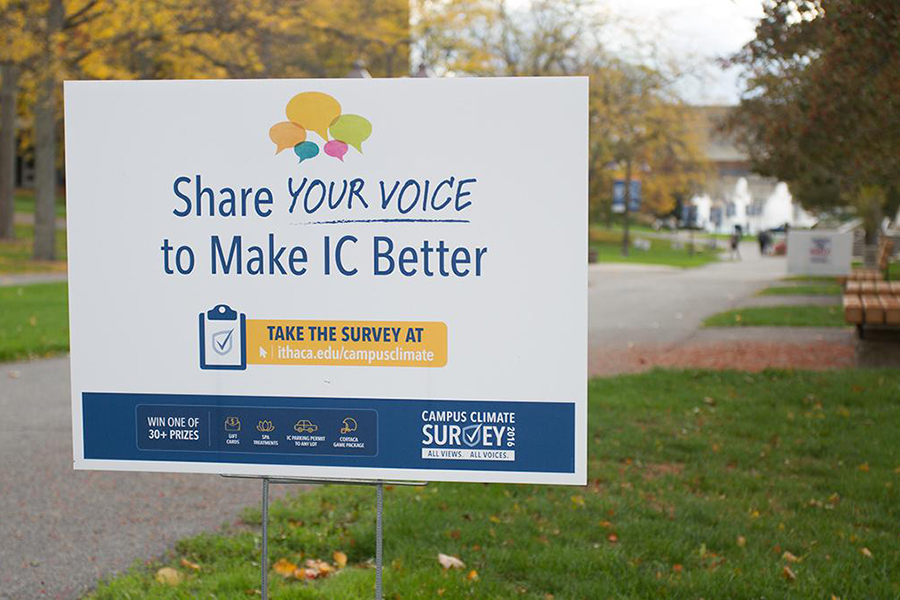Cornell University students and activists from the Tompkins County Workers’ Center were told to leave the McDonald’s located on Triphammer Road after holding a “flash mob” Dec. 5 to protest low worker wages.
The local “flash mob” was held in support of fast-food strikes, all held Dec. 5, at more than 100 locations nationwide. Student members of the Cornell Organization for Labor Action called for the minimum employee wage to be raised to a “living wage” of at least $15 per hour. Activists also want the right to form a union without fear of retaliation.
McDonald’s averaged $2.5 million in sales per store in 2012, according to Forbes.
Milton Webb, who attended the event as a member of the TCWC, said everyone deserves a living wage.
“I don’t care where you’re at, what you’re doing, who you’re working for: You need to live,” Webb said.
The event was organized by Olha Homonchuk, a junior at Cornell, who said it was important to take a stand.
“We did not do a crazy strike or anything,” Homonchuk said. “We just wanted to show our support — show that we care.”
After the flash mob event, participants exited the restaurant and gathered on the sidewalk outside the establishment. They were soon met by officers from the Tompkins County Sheriff’s Department and the Cayuga Heights Police Department. The officers ordered everyone off McDonald’s property, threatening arrest to at least one middle-aged woman who had not directly participated in the flash mob.
The county sheriff’s department was unavailable for comment. McDonald’s did, however, release a statement on its website.
“McDonald’s and our owner-operators are committed to providing our employees with opportunities to succeed,” the company said. “We offer employees advancement opportunities, competitive pay and benefits. And we invest in training and professional development that helps them learn practical and transferable business skills.”
Homonchuk said student protesters were not allowed to distribute information folders to workers behind the counter.
“The workers were scared to even look at us because the manager was there,” Homonchuk said.
Webb, who makes $9.25 an hour working at the Tompkins County Recycling and Solid Waste Center, said he was not intimidated when the restaurant manager called police.
“There’s a lot of people that try and stop us from doing what we’re doing,” Webb said. “But you can’t stop this movement. This is about living.”
A recent study by the University of California, Berkeley found that more than half of all fast-food workers rely on public assistance programs like Medicaid or food stamps.
Keanu Meschach, a member of COLA, said workers depend on these jobs to help pay tuition and rent.
“$7.25 just isn’t enough to get by for students, so it’s definitely not enough for our co-workers who have families to support,” said Meschach.
Only about 13 percent of fast-food workers receive health benefits from their employers, compared to 59 percent of the private sector as a whole, the study found.
“The inequality in this country is going through the roof,” Homonchuk said. “The 1 percent is making so much more money than the workers here.”
Stanley McPherson, who attended the protest, said corporations have a responsibility to pay their employees competitive wages.
“All of these fast-food joints — these are million, billion dollar industries, and they don’t want to pay a living wage,” McPherson said. “It’s outrageous.”
McDonald’s said in its statement that all of its restaurants are committed to their employees.
“We also respect the right to voice an opinion,” the company said. “To right-size the headlines, however, the events taking place are not strikes. Outside groups are traveling to McDonald’s and other outlets to stage rallies. Our restaurants remain open today — and every day — thanks to our dedicated employees serving our customers.”
Cornell students participated in a similar protest at a McDonald’s in Philadelphia earlier this fall. They said that event motivated them to gather Thursday night.
“This inspires workers to stand up for themselves,” Homonchuk said.

